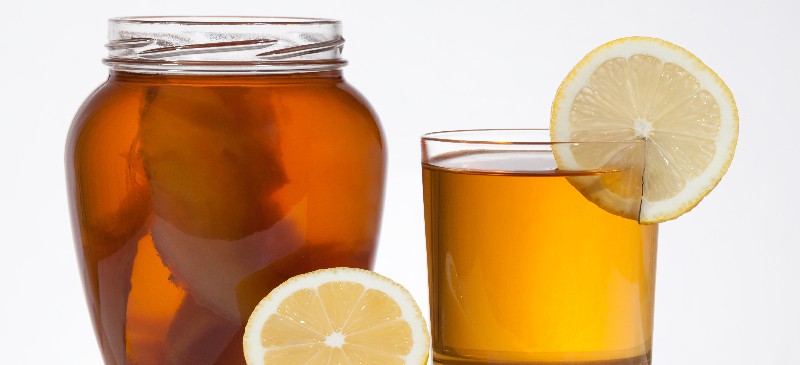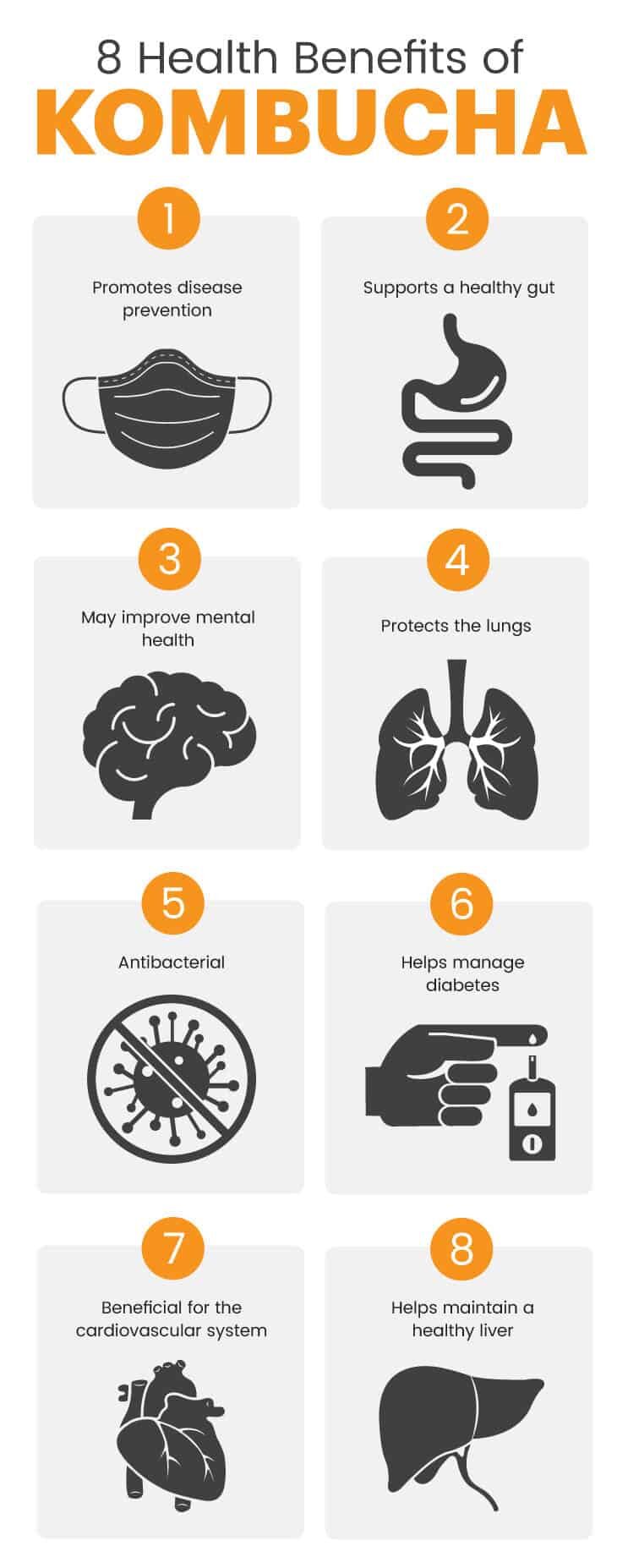This Dr. Axe content is medically reviewed or fact checked to ensure factually accurate information.
With strict editorial sourcing guidelines, we only link to academic research institutions, reputable media sites and, when research is available, medically peer-reviewed studies. Note that the numbers in parentheses (1, 2, etc.) are clickable links to these studies.
The information in our articles is NOT intended to replace a one-on-one relationship with a qualified health care professional and is not intended as medical advice.
This article is based on scientific evidence, written by experts and fact checked by our trained editorial staff. Note that the numbers in parentheses (1, 2, etc.) are clickable links to medically peer-reviewed studies.
Our team includes licensed nutritionists and dietitians, certified health education specialists, as well as certified strength and conditioning specialists, personal trainers and corrective exercise specialists. Our team aims to be not only thorough with its research, but also objective and unbiased.
The information in our articles is NOT intended to replace a one-on-one relationship with a qualified health care professional and is not intended as medical advice.
8 Kombucha Benefits, Plus How to Make This Gut-Friendly Beverage
September 12, 2023

Originating in the Far East around 2,000 years ago, kombucha is a beverage with tremendous health benefits extending to your heart, your brain and (especially) your gut.
How does this ancient drink make such a huge difference in your body? Why is it considered one of the top healthy drinks?
Due to the fermentation process involved in creating kombucha, it contains a large number of living healthy bacteria known as probiotics. These bacteria line your digestive tract and support your immune system, as they absorb nutrients and fight infection and illness.
Since 80 percent of your immune system is located in your gut, and the digestive system is the second largest part of your neurological system, it’s no surprise that the gut is considered the “second brain.”
If you already eat a whole foods based diet, drinking kombucha regularly is a great addition that can help you maintain peak immune health, which trickles down into an impressive number of benefits for your overall health.
What Is Kombucha?
Kombucha is a fermented beverage consisting of black tea and sugar (from various sources, including cane sugar, fruit or honey) that’s used as a functional, probiotic food.
It contains a colony of bacteria and yeast that is responsible for initiating the fermentation process, once combined with sugar.
Following fermentation, kombucha becomes carbonated and contains vinegar, B vitamins, enzymes, probiotics and a high concentration of acid.
The sugar-tea solution is fermented by bacteria and yeast commonly known as a SCOBY, which stands for “symbiotic culture of bacteria and yeast.” Contrary to common claims, a SCOBY is not a mushroom.
Although it’s usually made with black tea, kombucha can also be made with green tea — or both. The origin can be traced back to ancient China, where it was known as the “Tea of Immortality.” It has also been enjoyed for its medicinal properties in Russia, Japan and Europe for several hundred years as well.
This health elixir has the following probiotic content:
- Gluconacetobacter (>85 percent in most samples)
- Acetobacter (<2 percent)
- Lactobacillus (up to 30 percent in some samples)
- Zygosaccharomyces (>95 percent)
So what does kombucha taste like? There are a number of different flavors available, but it’s generally fizzy, tart and slightly sweet.
Some people find it a healthier substitute for sodas, which can help satisfy that craving for a fizzy drink. There are even some soda-flavored varieties, making it a great option to cut down on your sugar intake while boosting your consumption of benefit-rich probiotics.
Can you lose weight by drinking kombucha? By swapping it for soda or other sugar-sweetened beverages, you can quickly cut down on your calorie consumption, which could lead to weight loss. (Interested in another probiotic-rich drink? Try kvass.)
Nutrition Facts
Although nutrition facts can differ between brands and homemade brews, kombucha is generally low in calories but high in B vitamins like folate, riboflavin, vitamin B6 and thiamine.
Is kombucha alcoholic? The alcohol content of most products is less than 0.5 percent, meaning it is usually labeled as “non-alcoholic.”
Another common question is: Does kombucha have caffeine? Although it does contain a small amount of caffeine, it is significantly lower than the tea that is made to produce it.
One 16-ounce bottle of unpasteurized, organic kombucha drink contains the following nutrients:
- 60 calories
- 14 grams carbohydrates
- 4 grams sugar
- 20 milligrams sodium
- 100 micrograms folate (25 percent DV)
- 0.34 gram riboflavin/vitamin B2 (20 percent DV)
- 0.4 milligram vitamin B6 (20 percent DV)
- 0.3 milligram thiamine/vitamin B1 (20 percent DV)
- 4 milligrams niacin/vitamin B3 (20 percent DV)
- 1.2 micrograms vitamin B12 (20 percent DV)
Benefits
1. Aids in Disease Prevention
According to a review published by the University of Latvia, drinking kombucha tea can be beneficial for many infections and diseases “due to four main properties: detoxification, anti-oxidation, energizing potencies and promotion of depressed immunity.”
Kombucha contains an array of powerful antioxidants that can help to detoxify the body and protect against disease.
These antioxidants can help reduce inflammation, which can help protect against many chronic conditions such as diabetes, heart disease and even cancer.
While normal black tea does contain antioxidants, research shows that the fermentation process of kombucha creates antioxidants not naturally found in black tea, including D-saccharic acid, also known as glucaric acid.
2. Supports Gut Health
Naturally, the antioxidant prowess of this ancient tea counteracts free radicals that create mayhem in the digestive system.
However, the greatest reason kombucha supports digestion is because of its high levels of beneficial acid, probiotics, amino acids and enzymes.
Although it does contain bacteria, these are not harmful pathogenic strains of bacteria. Instead, they are a beneficial form of bacteria known as probiotics, which are involved in everything from immune function to mental health and nutrient absorption.
Some animal models have shown that kombucha could help prevent and heal stomach ulcers.
It can also help stop candida from overpopulating within the gut by restoring balance to the digestive system, with live probiotic cultures that help the gut repopulate with good bacteria while crowding out the candida yeast.
3. May Improve Mental Function
In addition to enhancing digestion, kombucha might be able to protect your mind as well.
This is partially due to its content of B vitamins, which are known to increase energy levels and improve overall mental well-being. Its high vitamin B12 content is one reason supplements sometimes contain dry kombucha products.
It’s also rich in probiotics, which are a form of beneficial bacteria that are thought to play an integral role in mental health.
Some studies have shown that probiotics could aid in the treatment of conditions like depression, anxiety, autism spectrum disorder and obsessive-compulsive disorder.
4. Promotes Lung Health
One unexpected benefit of kombucha is its use as a potential treatment method for silicosis, a lung disease caused by repeated exposure to silica particles.
One animal model conducted in China discovered that inhalation of kombucha could be a way to treat silicosis, along with several other diseases of the lungs caused by inhalation of dangerous material.
That being said, it’s still recommended to drink your kombucha rather than inhaling it.

5. Fights Bacteria
Although it may seem counterintuitive, drinking the live cultures in kombucha can actually destroy many strains of bad bacteria that are responsible for infections.
In lab studies, it has been found to have antibacterial effects against staph, E. coli, Sh. sonnei, two strains of salmonella and Campylobacter jejuni.
Many of these strains of bacteria are responsible for food poisoning and foodborne illness around the world.
6. Helps Manage Diabetes
Although some practitioners warn against kombucha for diabetics, it seems that some research suggests just that consuming low-sugar varieties of it could actually be beneficial.
Because of the antioxidants that it contains, it has been shown to help alleviate diabetes symptoms in some animal models, even more effectively than the black tea from which it’s fermented.
It may also help support the function of the liver and kidney, which is generally poor for those with diabetes.
7. Supports Heart Health
Kombucha has been considered to be beneficial to the heart for some time, although research efforts in this area have been scarce.
However, it seems clear that, in animal models, kombucha can help lower triglyceride levels and regulate cholesterol naturally.
8. Maintains Liver Function
The liver works hard to filter and excrete harmful compounds, which is why it’s a vital component in digestion and overall health.
According to some in vitro studies, the antioxidants in kombucha may protect the liver from oxidative stress and damage induced by acetaminophen overdose.
Kombucha Recipe
Kombucha is easy to make from the comfort of your own home. This recipe makes about eight cups, but you can also double the recipe to make more — and you still only need one SCOBY disk, which you can find at many health stores or as part of a kombucha starter kit.
Serves
8 cups
Ingredients
- 1 large glass or metal jar or bowl with a wide opening
- 1 large piece of cloth or a dish towel
- 1 SCOBY disk
- 8 cups of filtered or distilled water
- ½ cup organic cane sugar or raw honey
- 1 cup of pre-made kombucha
Directions
- Bring your water to boil in a big pot on the stovetop. Once boiling, remove from heat and add your teabags and sugar, stirring until the sugar dissolves.
- Allow the pot to sit and the tea to steep for about 15 minutes, then remove and discard tea bags.
- Let the mixture cool down to room temperature (which usually takes about one hour). Once it’s cool, add your tea mixture to your big jar/bowl. Drop in your SCOBY disk and 1 cup of pre-made kombucha.
- Cover your jar/bowl with your cloth or thin kitchen towel and try to keep the cloth in place by using a rubber band or some sort of tie. You want the cloth to cover the wide opening of the jar and stay in place but be thin enough to allow air to pass through.
- Allow it to sit for 7–10 days, depending on the flavor you’re looking for. Less time produces a weaker kombucha that tastes less sour, while a longer sitting time makes the drink ferment even longer and develop more taste. Some people report fermenting it for up to a month before bottling with great results, so taste test the batch every couple of days to see if it’s reached the right taste and level of carbonation for you.

Brewing Flavored Kombucha
The kombucha recipe above is for a basic, unflavored kombucha. You can try adding unique flavors like fresh-squeezed lemon or lime juice; ginger root “juice” made by blending ginger and water; blended berries; and fresh-squeezed orange, pomegranate or cranberry juices.
You can also use other natural, low-sugar flavorings, but make sure that they do not include aspartame or any other dangerous artificial sweeteners.
I recommend doing this after it has become a fermented tea and is ready to drink, although some people prefer to add flavor-enhancers to the kombucha a day or two before it’s done so the flavor can intensify. Either way seems to work well.
Another thing to keep in mind is that flavored, bottled kombucha tends to have more sugar than the plain kind. Some brands add very low-sugar flavors like lemon, lime or ginger juice, which won’t jack up the sugar content, but look out for kinds that are high in added, hidden sugar and aggravate health problems.
Storing Kombucha
Once your homemade kombucha is complete (or you’ve just returned from the grocery store), you want to store it in a clear glass bottle or jar with a tightly fit lid, preferably not metal, if you have the option. Plastic bottles may swell or harden, and color from dyed jars can get into the drink.
When bottling kombucha, leave an inch or less of air at the top of the bottle. This should allow for an appropriate amount of carbonation.
It’s important never to shake a bottle of this drink and risk exploding its container. Try holding your entire hand over the lid as you open it to prevent it from popping off unexpectedly.
Be sure to refrigerate your completed beverage to extend its shelf life. If you add flavoring, consider that when storing the it. For example, fresh fruits will go bad in the kombucha long before the drink.
Risks and Side Effects
Can kombucha be harmful? Most people experience many kombucha benefits and experience little to no adverse side effects. However, there are some kombucha dangers and precautions that you may want to consider.
Kombucha side effects seem to be more of a risk when making it yourself because contamination is possible, and the SCOBY disk and finished product aren’t tested for quality like they are when manufactured commercially.
If you’re going to brew your own, be sure to use sterile equipment, clean working spaces and high-quality ingredients.
A small percentage of people experience bloating, nausea, infections and allergic reactions when drinking kombucha. Because it has a high level of acidity, it’s possible that this can cause problems for people with digestive problems, like stomach ulcers, heartburn or sensitivity to very acidic foods.
Additionally, because of the acidity, you can help prevent damage to your teeth by drinking it at one sitting and swishing water in your mouth afterward.
People who have severely compromised immunity due to certain viruses like HIV/AIDS need to be careful about consuming it since there is always a possibility that the yeast can grow harmful bacteria that can cause illness. This is especially true of homemade varieties.
While it hasn’t been studied much in pregnant women, there is always concern that pregnant women shouldn’t consume alcohol or caffeine, both of which are present in kombucha in small amounts. Check with your doctor before consuming it and keep your intake in moderation to prevent any adverse side effects.
Final Thoughts
- Kombucha is a fermented beverage made from black tea and sugar.
- Following fermentation, it becomes rich in vinegar, B vitamins, enzymes, probiotics, all of which contribute to its many health benefits.
- Potential kombucha health benefits include better gut health, improved mental function, enhanced blood sugar control and disease prevention.
- There are plenty of methods for how to make kombucha at home, but it always involves using a SCOBY, which is a symbiotic culture of bacteria and yeast.
- For most people, this fermented drink can be a safe and healthy addition to the diet. However, women who are pregnant as well as those with compromised immunity or digestive issues should check with their doctor prior to consumption.














